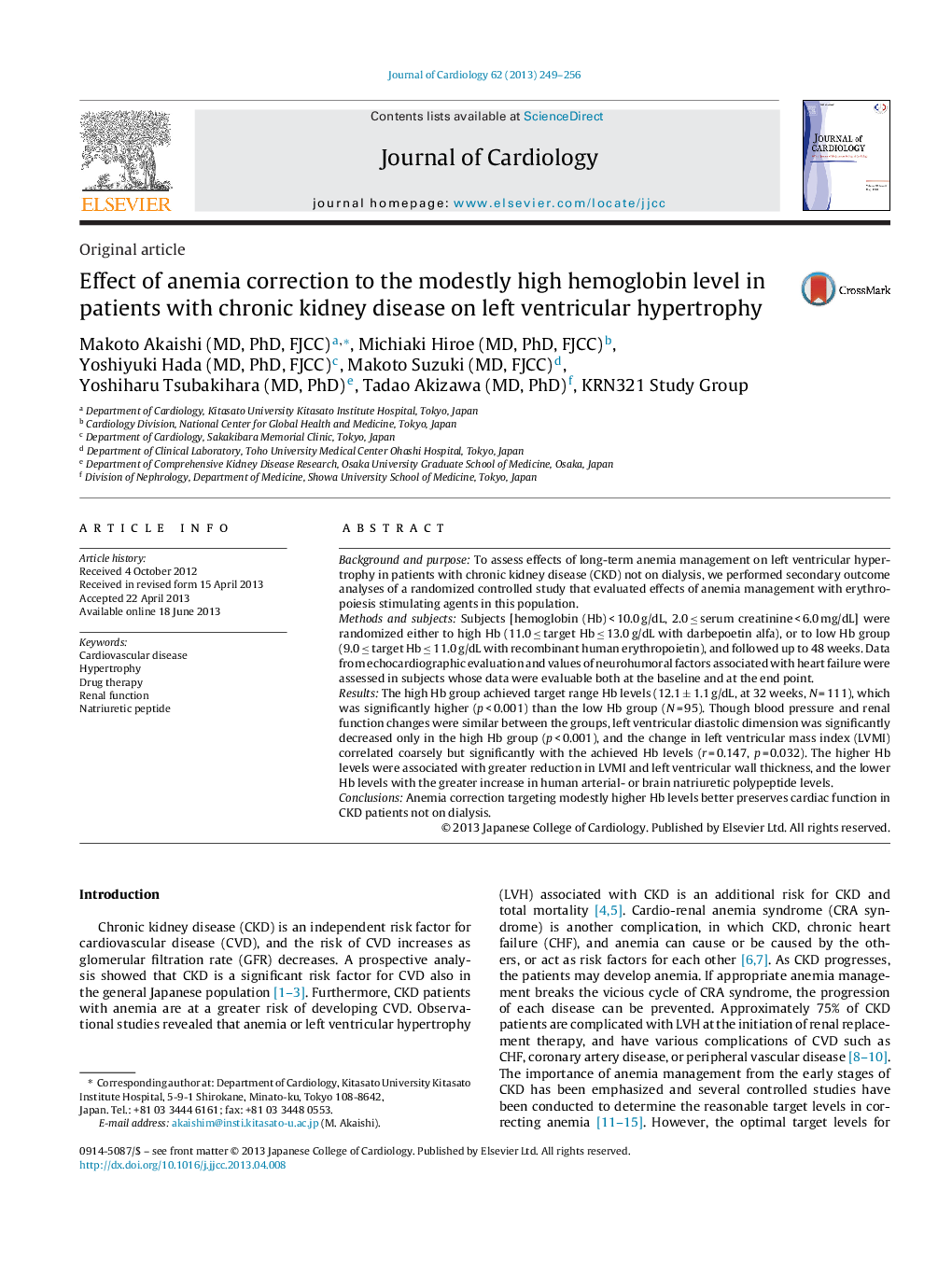| Article ID | Journal | Published Year | Pages | File Type |
|---|---|---|---|---|
| 5984200 | Journal of Cardiology | 2013 | 8 Pages |
Background and purposeTo assess effects of long-term anemia management on left ventricular hypertrophy in patients with chronic kidney disease (CKD) not on dialysis, we performed secondary outcome analyses of a randomized controlled study that evaluated effects of anemia management with erythropoiesis stimulating agents in this population.Methods and subjectsSubjects [hemoglobin (Hb) < 10.0 g/dL, 2.0 â¤Â serum creatinine < 6.0 mg/dL] were randomized either to high Hb (11.0 â¤Â target Hb â¤Â 13.0 g/dL with darbepoetin alfa), or to low Hb group (9.0 â¤Â target Hb â¤Â 11.0 g/dL with recombinant human erythropoietin), and followed up to 48 weeks. Data from echocardiographic evaluation and values of neurohumoral factors associated with heart failure were assessed in subjects whose data were evaluable both at the baseline and at the end point.ResultsThe high Hb group achieved target range Hb levels (12.1 ± 1.1 g/dL, at 32 weeks, N = 111), which was significantly higher (p < 0.001) than the low Hb group (N = 95). Though blood pressure and renal function changes were similar between the groups, left ventricular diastolic dimension was significantly decreased only in the high Hb group (p < 0.001), and the change in left ventricular mass index (LVMI) correlated coarsely but significantly with the achieved Hb levels (r = 0.147, p = 0.032). The higher Hb levels were associated with greater reduction in LVMI and left ventricular wall thickness, and the lower Hb levels with the greater increase in human arterial- or brain natriuretic polypeptide levels.ConclusionsAnemia correction targeting modestly higher Hb levels better preserves cardiac function in CKD patients not on dialysis.
